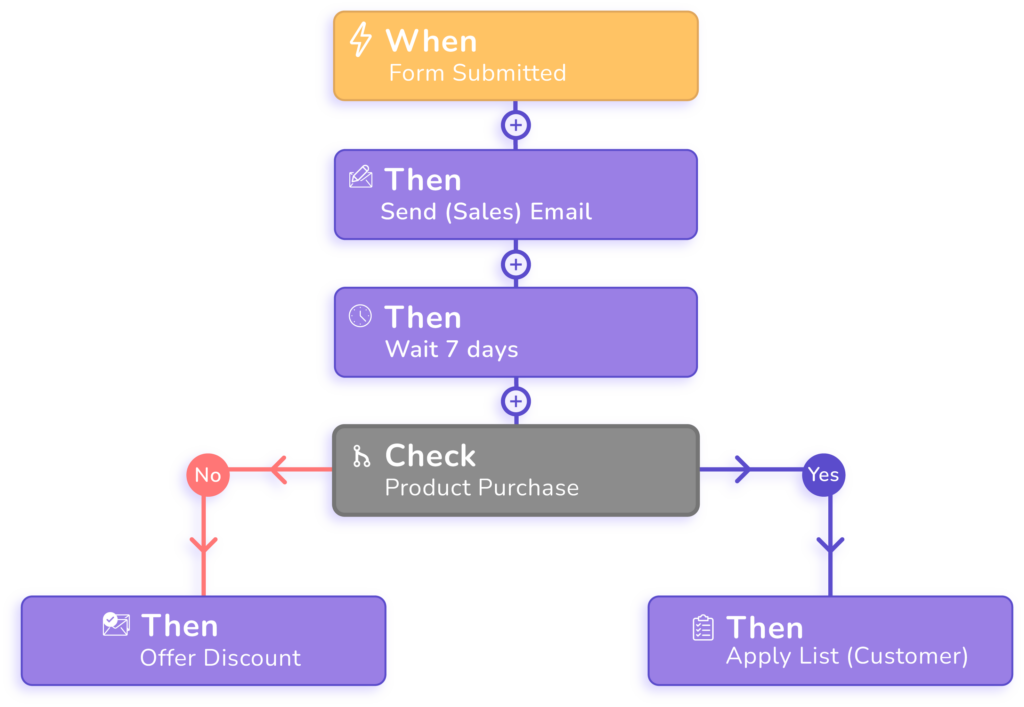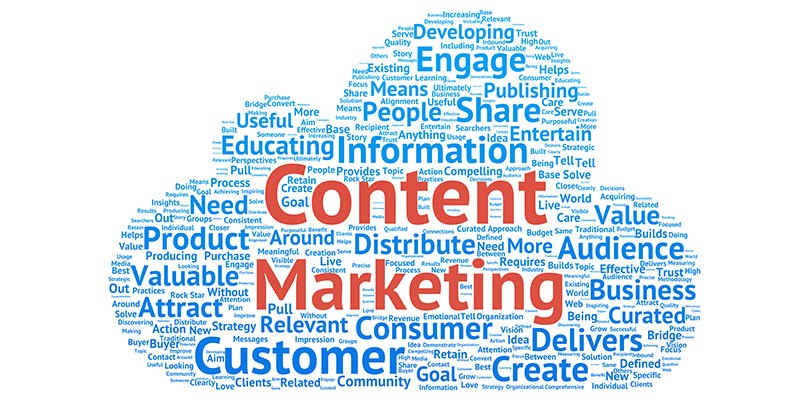
RPA (Robotic Process Automation) for marketing is software that automates repetitive, tedious and time-consuming processes. This technology frees the marketing department to focus more on creative and strategically-oriented activities that drive results.
Marketers use different tools and channels to engage their customers and boost conversions. Marketers must have an understanding of a wide variety of data platforms and sources.
Automation is becoming more important for marketing tasks. It allows marketers to focus their efforts on the campaigns that are most relevant at the moment. RPA can increase accuracy and reduce errors when it eliminates the need for manual data input.
Robotic Process Automation (RPA) in marketing has become a standard practice for many companies. It is a software solution that enables automation of tasks in a marketing workflow by using AI and machine learning algorithms.

RPA is a powerful tool for marketing.
Cost Savings
By reducing the number of manual tasks that need to be completed, businesses can save 40-70% on labour costs per business process. They can then reinvest the savings into more innovative initiatives, and improve their operational performance.
Improving customer satisfaction
It is important to give your customers a positive experience. It is important to provide customers with the most accurate and current information possible about your product or service. RPA improves customer satisfaction over time by automating processes and minimizing the need for manual data entry.
Personalization
The expectation of a personalized shopping experience is growing as advanced analytics and new technology make it easier to understand the behaviors and preferences of customers. This allows marketers to tailor marketing content to meet the individual needs and preferences for consumers. It increases customer engagement, and ultimately drives conversions.
Monitor and measure the competitiveness of your business
Companies need to constantly monitor their competitors to ensure they can compete for clients. Although this is a time-consuming process, it's essential for success and to maintain competitiveness. For this, businesses need a tool that will scan the internet for prices and compare them to their own. This way they can ensure that they're offering the best price.

One solution is to use automated pricing software. This can calculate the price automatically based on features and specs of a product, as well competitors' prices. It is important to make sure that the product's price is competitive without compromising quality or profit margins.
Reporting and Analytics
Sales teams must be aware of how they perform and the status their marketing and sales initiatives. A reporting system can provide them with instant insight into the success or failure of their sales, as well as threats and opportunities. It can be extremely useful for them when they plan their future strategies.
FAQ
Can I automate WordPress?
Automated WordPress automates manual processes involved in maintaining a WordPress website. Automated WordPress makes it easier to keep your website up-to-date, make changes quickly, protect it from malicious attacks and track user activity.
Automated WordPress allows you to automatically update your content from the server. It simplifies site maintenance, such as backing-up files and restoring data when necessary. Automated WordPress can also provide integrated security solutions, which will identify any potential threats for your website.
Automated WordPress tools allow you to collect data about visitors to your site. This includes information such as browsing habits and demographics. This data can help you develop better marketing strategies and other initiatives.
Automated WordPress can improve efficiency while decreasing workloads and making managing websites easier. It can simplify repetitive tasks and provide valuable insight into how users interact with your website - which will help you make smarter decisions.
Automated WordPress is not only beneficial for businesses, but also allows them to take advantage marketing automation tools that can further streamline their operations. Automated marketing tools allow businesses to automate campaigns and track results in real time. These tools allow businesses to quickly create campaigns and target customers segments. They can also track the success of their efforts. This allows businesses to save time, money, and make sure they reach the right people by using the right message.
What is WordPress marketing Automation?
WordPress marketing automation is a system for automated, streamlined, and effective management of all online content and communications related to marketing, including websites, email campaigns, social media posts, online advertising, and more. It enables the efficient execution of automated tasks that would be too tedious or time-consuming to do yourself.
Businesses can save time, but it also helps ensure consistent brand promotion on multiple channels. Customers can also engage with them in real time. Automation simplifies complicated tasks such as segmentation and data analysis so that marketers can spend their time creating strategies based in accurate insights and not manually looking through huge volumes of data.
WordPress marketing automation focuses on creating lead nurturing workflows, sending emails based off specific visitor actions, and personalizing customer journeys using personalized messages to exceed customers' expectations. To measure campaign effectiveness over time, detailed reports are provided on website activity and ROI performance.
WordPress marketing automation lets businesses automate repetitive tasks while increasing their marketing performance through better marketing resources. All this while keeping costs low.
What is SEO Automation?
Automation in SEO is the application of technology to automate marketing-related tasks. It can save time and reduce costs while making campaigns run more efficiently. Automation can be used to streamline SEO activities, such as content creation and keyword research, link-building, SEO recommendations, reporting, etc. Automated SEO solutions offer data-driven analysis to identify high-value opportunities that are otherwise hard to uncover using traditional search engine optimization methods.
There is almost no SEO task that can't be done automatically these days. This includes everything, from monitoring websites' performance and competitor insights to optimising your content for higher search engine rankings.
Teams can now focus their time on strategic initiatives instead of getting bogged down with manual tasks. Automation allows them to automate in the background. Automation is a great way to increase ROI and save valuable resources by delivering rapid improvements across multiple metrics.
You can also keep up to date with all changes happening across different search engines. This allows you make sure that your website remains competitive within a rapidly changing digital landscape.
Automating can also make it easier to create and distribute content faster. Automated tools for SEO allow you to quickly create content that is keyword rich and meets the needs your target audience. Automation is also available to schedule content and publish it on different channels such as social media, blogs, or websites. This allows you to reach a larger audience and improves your visibility on search engine result pages (SERPs).
Can you automate your tasks with SQL?
For any scale of the project, from small and quick to complex and massive, SQL is the key to automating business processes. It automates manual steps like searching in tables or manually entering data.
SQL makes it easy to quickly sort through thousands or hundreds upon thousands of records from a database table. You can also quickly transform data into colorful graphical visualizations that are easier for everyone to understand.
SQL allows customers to get crucial insights into their products, customers, and activities. You can run powerful queries over structured data sets using SQL. These insights allow you to improve accuracy and reduce time spent on mundane tasks.
Automated reports can also be set up and scheduled to automatically refresh, so everyone is on the same page. You can save valuable time, which would otherwise have to be spent in the office. SQL can do it all, whether it's tracking and simplifying processes across departments or allowing teams to communicate key findings more efficiently.
SQL is also great for automating tasks that require complex calculations or data manipulation. SQL can be used for automating tasks that require complex calculations or data manipulation. This can streamline workflows, and ensure that everyone is updated with the most current information.
Finally, SQL can be used to automate marketing activities such as email campaigns and website analytics. SQL can be used for automated marketing campaigns to target certain customer segments, or to track the performance and changes of your website in real-time.
Is marketing automation the future?
Marketing automation involves the use software and technology to automate, automate, or measure marketing tasks. This allows for the freeing up of manual resources to perform more complicated tasks such as analyzing customer behavior or creating personalized engagement campaigns. It is a time-saving tool that helps marketers save money, energy, and time by automating mundane tasks such segmentation, testing, and personalizing campaigns. It also tracks website visits and behaviour, manages customer engagements across multiple channels, and so on.
The future of marketing automation lies in its ability to make the customer journey simpler and better understood. By tapping into richer data sources such as social media platforms or connected devices, marketers will be able to track customer journeys across channels in order to create personalized experiences that engage customers at every touch point. This will allow marketers to design highly targeted, agile strategies.
This will enable marketers to automate decisions and increase efficiency, as well as artificial intelligence (AI). AI-powered bots automate repetitive tasks like scheduling emails and answering simple FAQs from customers. This allows marketers the freedom to concentrate on important tasks that require human insight, such as refining a content strategy or understanding customer sentiments about specific products.
Finally, with an increased acceptance of marketing automation tools among smaller businesses along with advancements being made in predictive analytics technologies which help generate insights from data collected via marketing automation; it's safe to say that automated marketing will continue to rise in popularity as we approach 2021.
Marketing automation is an indispensable tool that can help companies succeed in today’s competitive market. With the right tools, businesses can save money and provide personalized customer service. By leveraging customer segmentation to ensure each campaign is targeted and personalized for the highest chance of success, as well as sending automated messages tailored for each customer segment, businesses can improve both response rates and customer satisfaction. As technology evolves, marketing automation is going to become an even more critical tool for businesses in order to stay competitive and prosper in the future.
What example is there of marketing automation?
Marketing automation is technology that allows businesses automate manual processes such as responding to customer emails, gathering data from your website and managing multiple digital marketing campaigns. It can send automatic emails based a customer's behavior, segment customers into different groups, or create new contacts when someone subscribes to a newsletter. Marketing automation allows you to spend less time on repetitive tasks and more time on the important things that matter - reaching customers. Automation not only makes it easier to manage multiple campaigns at the same time, but it also increases efficiency by automating repetitive tasks.
One example of marketing automation involves using an automated email program to nurture leads. This campaign sends a series of emails over a specified time to prospects. Emails can be tailored to each individual and include information such as case studies, product information and discounts. Automated email campaigns can be used to track customer behavior so that you can tailor your messages accordingly. They allow you to reach more customers in a shorter time.
Another example is social media automation. This is when posts and content are scheduled across multiple social networks to reach more people. Hootsuite/Buffer automation tools allow you to manage all your accounts and schedule posts ahead. You can also track the performance of your campaigns using tracking software. Social media automation helps save time by allowing you to post content at the most optimal times for maximum engagement. It also helps you reach more people in fewer clicks.
Marketing automation can also create personalized customer experiences. HubSpot Automation and Pardot let you segment your customers based their behavior or preferences. This allows you to customize your messages and content according to each group, creating a more personal experience for each customer. Automating customer engagement and activity allows you to better understand your customers' needs and preferences.
Marketing automation is an effective tool that can help businesses save money and increase efficiency. It can be used to automate manual tasks as well as nurture leads, manage social accounts, and create personalized customer experiences.
By leveraging marketing automation, businesses can gain a competitive edge in the market. Automation helps streamline processes, reduce costs and increase efficiency. Automation helps businesses reach more people in less time. It automates repetitive tasks and crosses-posts content across multiple platforms. By segmenting customers into different groups, and tailoring messages accordingly, marketing automation allows businesses to create customized customer experiences. Marketing automation is a powerful tool that businesses can use to save time and increase their efficiency.
Statistics
- While they're doing that, their competition is figuring out how to get more out of the 99.99% of the market that's still out there. (hubspot.com)
- Not only does this weed out guests who might not be 100% committed but it also gives you all the info you might need at a later date." (buzzsprout.com)
- The stats speak for themselves: Marketing automation technology is expected to show a 14% compounded annual growth rate (CAGR) over the next five years. (marketo.com)
- Automator can probably replace 15% or more of your existing plugins. (automatorplugin.com)
- The highest growth for “through-channel marketing automation” platforms will reach 25% annually, with “lead-to-revenue automation” platforms at 19.4%. (marketo.com)
External Links
How To
How can I use automation to personalize my content-marketing efforts?
Automated personalized is a process that uses data-driven insight and automated technology in order to tailor content for different personas. This helps you create personalized marketing experiences based on how each individual interacts with your brand. Segmentation, targeting and optimization strategies can all be used to increase relevancy.
By tailoring your content to the needs and preferences of specific audiences, it becomes more likely that they will engage with your brand. Automating tasks also allows you to focus on more important tasks such as creating high-quality content and strategizing how to reach the desired audience.
Segmentation is the key to personalization. It allows you to break down your audience into smaller segments so that you can target them better. This can be automated using past behavior patterns to create segments that are based on language and interests. This allows you to create targeted messages for each group rather than blasting one message across every platform.
Targeting works alongside segmentation. Once your audience has been divided, it is time to get messaging just right by landing targeted offers or ads at the ideal times. This could mean targeting particular pages or channels of an email campaign or placing banners to various micro-targeted places - data intelligence transcends traditional methods of finding potential leads, such as direct mail or cold calls.
Optimization is the final step. This allows marketers to make small adjustments to ongoing campaigns to achieve better results. Customers can also be personalized messages based on their actions. Businesses can now access powerful tools to make sure customers get customized messages by analyzing past campaigns, as well as making adjustments in real time.
Automated personalization streamlines content marketing efforts. It allows brands to quickly segment audiences and optimize engagement with real-time data analytics adjustments.